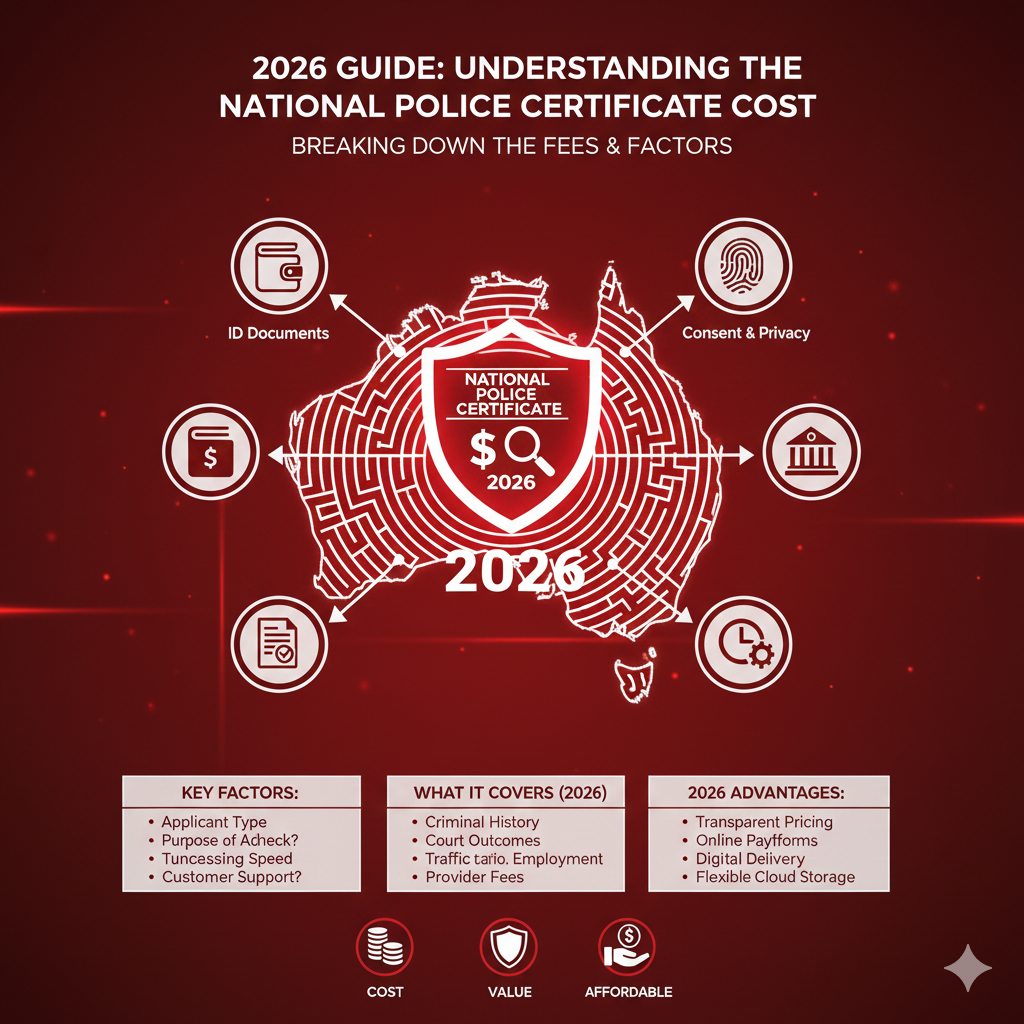Protecting residents or clients in aged care from any form of harm is very significant. One of the most sensitive aspects of their protection has to do with the police check for aged care employment. This guide explains all the essential details that make the police check vital, how authorities process them, and how valid they are in the context of aged care
What is a Police Check for Aged Care in Reality?
A police check in the context of aged care means background screening, which refers to ascertaining an individual’s criminal assertion to the particular aged care roles that he or she is applying for or already working for. This check is quite important to ascertain that workers in aged care meet every standard of safety and integrity set for taking care of elderly people.
Need for Police Checks in Aged Care
In fact, these police checks pull out people who have past records of criminal history, which can be very harmful to these two vulnerable groups Instruments are in establishing rapport and safety in aged care facilities with the surety of employing only those whose records are clean. For instance, if a potential employee has an offender’s record, they will not be eligible to work for any aged care organization because the staff has to deal with fragile populations like the old and the young.
How Long is a Police Check Valid for in Aged Care?
The period a police check remains valid is subject to variation depending on the organization and the jurisdiction but is generally accepted for up to three years. However, some organizations may update this more often due to the internal policy of some organizations and because the role bears a high risk factor.
Regular Updates and Renewals
Aged care facilities should demand constant new police checks on aged care facilities’ workers for their safety. This is because changes may be added to the individual’s crime record and, at some time, renewals of checks that had been returned clear of any wrongdoing. Rapid screening procedures may help keep checks updated.
NSW Police Check for Aged Care Workers
The police check for aged care workers is an inherent condition of employment in the New South Wales aged care sector. There are two ways to check: through the NSW Police check itself or an accredited supplier, targeting its goal of ensuring individuals employed in that sector do not possess any disqualifying elements in their criminal record.
These inspections are essential to guarantee that aged care providers fulfill the strictest requirements for dependability and trust, particularly when tending to old populations who are at risk. Before starting any work, employers must make sure that all employees whether permanent, part time, or volunteers have successfully undergone a police check. In many cases, this step is a legal requirement under aged care regulations and national standards.
Failure to comply can lead to penalties for facilities and potentially place residents at risk. Having a police check on record not only safeguards the well being of residents but also enhances transparency and builds public trust in the quality of care provided in NSW aged care services.
NSW Police Check Process
Application Submission
A person makes an application for a police check with the NSW Police Force or one of the accredited agencies.
Background Screening
An organization performs a comprehensive check of the background on behalf of the police force.
Issuing the Report
The result is issued in the form of a report containing any criminal history or, if not, simply a response stating “Nope, nothing to see here.
National Police Check for Aged Care
A national police check is a history check on the criminal records of a person in all states and territories of Australia. Such checks, in particular, would be valuable for employers with operations that transcend the borders between state and territory borders, such as in Victoria or South Australia. This includes a police check South Australia and other regions.
Benefits of National Police Check
This holds all the data of criminal records from all the states and territories.
Standardization
This brings about a standard way of going through the background check process throughout Australia.
Safety
This ensures that all forms of possible crimes are detected irrespective of where the crime is committed.
Police Check for Aged Care Victoria
A police check Victoria for aged care is an essential requirement when working in the Victorian aged care sector. The Victorian government to guarantee the safety of the elderly provokes these checks and that all concerned staff working with them strictly adhere to safety standards set out in operation. If you’re in Victoria, you may want to contact us for assistance with your police check.
Victoria Police Check Procedure
Application
The application for a police check happens from an applicant to the Victoria Police or an accredited agency.
Results
There will be a report returned on the record of an individual, indicating any conviction or cleanliness.
Police Check for Work in Aged Care: Key Factors
First, working in the aged care setting requires that one be aware of the requirements, their implementation, and setting into process. The following are some considerations on approaches to application:
How to Apply
- Choose an Accredited Provider:
Ensure that you are using an accredited provider to do a check that is acceptable and recognized.
- Complete the Application:
Fill the required application forms correctly.
- Provide Identification:
Submit some documents in identification just for substantiating your identity.
Costs and Processing Times
Costs
On some occasions, these police checks would come at a designated price depending on jurisdiction and provider.
Processing Times
The average processing times are many times from some days up to a few weeks, depending on the type of check one has applied for and the provider.
Compliance and Updates
Don’t let your police check be a one-off. Periodically check and update in line with aged care requirements.
Track Changes
Be abreast of policy regulation changes or other normative changes on police checks about aged care.
Conclusion
Therefore, aged care providers must consider the police check as a key factor to ensure smooth and safe operations. Understanding the importance, validity, and processes involved in police checks greatly helps in meeting the expectations required to safeguard elderly citizens, whether in Victoria or anywhere else in Australia.
Anyone working in or managing an aged care service must stay informed and comply with police check requirements, as failing to do so could have serious consequences
Frequently Asked Questions (FAQs)
Q) What cards do you need to work in aged care?
You often need a First Aid Certificate, Manual Handling Certificate, and a National Police Check to work in aged care
Q) How long are police checks valid in SA?
Police checks in South Australia are usually valid for 3 years
Q) Can I work in aged care with a criminal record in Australia
Some criminal records may disqualify you from employment in aged care in Australia, as the impact varies from serious offense to serious offense.
Q) What is the difference between a state based police check and a national police check?
A state-based police check only includes criminal history from that specific state or territory, while a national police check gathers records from all states and territories across Australia, offering a more comprehensive background screening.
Q) Do volunteers in aged care also require a police check?
Yes, volunteers in aged care are required to undergo a police check, especially when working directly with residents. This ensures the safety and well being of vulnerable individuals in care facilities.
Q) Can a police check be reused for multiple aged care jobs?
In most cases, a police check can be reused within its validity period (usually 3 years). However, some employers may require a new check based on internal policies or the nature of the role.
Q) What disqualifies someone from working in aged care?
Individuals with convictions involving violence, sexual offences, fraud, or abuse may be disqualified from working in aged care. Each case is assessed individually, but aged care facilities prioritise the protection of their residents.
Q) How long does it take to receive the results of a police check?
The provider, the type of check, and any matches found in the national database that require further review typically determine processing times.
Q) Do international workers in aged care need police checks from overseas?
Yes. If a worker has lived overseas in the past 10 years, they may need to provide an international police clearance in addition to an Australian national police check to meet employment standards.
Q) Who pays for the police check employer or employee?
It depends on the organisation. Some employers cover the cost as part of the hiring process, while in other cases, the applicant may be responsible for paying the fee during their onboarding.




